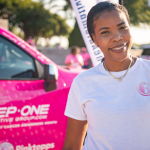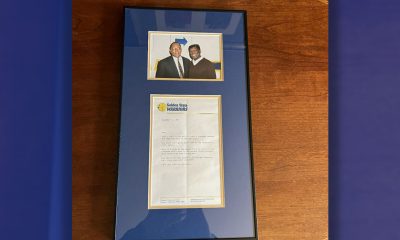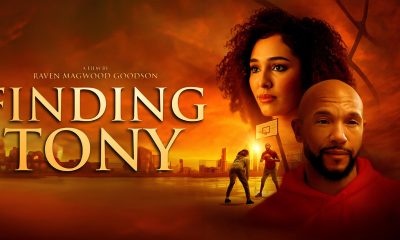Sports
Biggest Kentucky Group to Date Preparing for NBA Draft

From left, Kentucky NCAA college basketball players Willie Cauley-Stein, Andrew Harrison, Trey Lyles, Dakari Johnson, Devon Booker, Karl-Anthony Towns and Aaron Harrison stand during a news conference where they announced their intent to place their names in the NBA draft at the Joe Craft Center, Thursday, April 9, 2015, in Lexington, Ky. (AP Photo/James Crisp)
GARY B. GRAVES, AP Sports Writer
LEXINGTON, Ky. (AP) — John Calipari and his Kentucky pipeline to the NBA will have yet another major impact on the league’s annual draft.
It’s nothing new, but Thursday night could be record-setting — even for the Wildcats.
Calipari’s first Kentucky team in 2010 featured five first-round NBA draft picks, including No. 1 overall selection John Wall. Six Wildcats turned pro after their 2012 NCAA championship, with Anthony Davis and Michael Kidd-Gilchrist going 1-2 in a parade of four first-rounders.
All told, Calipari has groomed 15 first-round choices among 19 players, with the total figuring to jump significantly Thursday night.
A school-record seven Kentucky players from last year’s 38-1 Final Four team could hear their names called at the Barclays Center in Brooklyn, New York, with Karl-Anthony Towns possibly becoming Calipari’s third No. 1 overall selection in six years. Seven-footer Willie Cauley-Stein, 6-10 Trey Lyles and 6-6 shooting guard Devin Booker have also been invited to the green room and could be lottery selections.
Seven-footer Dakari Johnson and 6-6 twin guards Andrew and Aaron Harrison are also expected to be drafted, positioning the Wildcats to have 26 picks in Calipari’s six seasons, enough to stock nearly two NBA rosters alone.
That is nearly double any other school during that six-year span.
With Wall, Davis and DeMarcus Cousins coming off All-Star seasons and Towns facing huge expectations as one of the top selections, it’s no wonder Calipari boasts a scenario of an NBA All-Star game half comprised of Kentucky talent.
“Our goal is not just to help guys get into the league; we want guys to become all-stars,” the coach said during a teleconference last week. “We had three last year, and if you took Derrick Rose (a No. 1 overall under Calipari at Memphis in 2008) as a fourth, then our goal would be to say, ‘Hey, half of the NBA all-stars started with us.'”
Though many in Kentucky’s fan base consider the 2012 draft class as the school’s gold standard for pro talent. Calipari often refers back to his 2010 group for setting that high bar of success for subsequent groups to follow.
Wall has overcome an injury-filled start to his career to become an All-Star guard and lead the Washington Wizards to back-to-back playoff appearances. Cousins earned his first All-Star selection last season and is considered one of the NBA’s top big men after averaging 24.1 points and 12.7 rebounds with the Sacramento Kings.
Eric Bledsoe and Patrick Patterson, who went 18th and 14th to Oklahoma City and Houston respectively, are key parts of the rotation in Phoenix and Toronto. Daniel Orton meanwhile hopes to land on a roster next season.
“I feel good about my chances,” said Orton, the 29th overall choice with Orlando. “When you have that Kentucky stamp and teams know what they’re getting, you’ve got to perform.”
As for that 2012 class, Davis and Kidd-Gilchrist established another school milestone as the first two players chosen and are considered respective franchise cornerstones in New Orleans and Charlotte. Terrence Jones was a key cog for Houston, and Darius Miller just helped the Brose Baskets win the German League championship last weekend.
Doron Lamb and Marquis Teague have bounced back and forth between the NBA and the Developmental League, but Calipari sounded hopeful that their work could land another opportunity.
“You gotta let it play out,” Calipari said, “but I come back to us teaching position-less basketball, and it’s not one way of playing, it’s a lot of ways of playing. … I’m proud of these guys, and these guys got a lot to live up to.”
The coach has stressed that point to his latest crop of pro prospects, whose versatility could fill a number of teams’ needs. Calipari provided pro scouts an initial opportunity to judge them last fall during an on-campus combine that drew representatives from every NBA team.
For Kentucky players, the tryout offered a baseline to prepare for the next level. Scouts meanwhile got glimpses of talent from which to track during the Wildcats’ remarkable season that put them within reach of becoming the nation’s first unbeaten champions since Indiana in 1976.
Now comes the next step of teams choosing from Calipari’s biggest pool of talent. Towns seems set on going no worse than second, but his former teammates’ fates depend on where clubs determine they might fit best.
With so many options this year, Detroit Pistons president and coach Stan Van Gundy stresses being as thorough as possible before choosing with the eighth overall pick.
“It takes a little longer to get through that film, at least for me,” Van Gundy said, “simply because as you’re making your notes, you might be making notes on five different people on the same play. It takes a little longer to write things up.”
___
AP Sports Writer Noah Trister in Detroit contributed to this report.
Copyright 2015 The Associated Press. All rights reserved. This material may not be published, broadcast, rewritten or redistributed.
Activism
McClymonds High Names School Gym for Star Graduate, Basketball Legend Bill Russell
William “Bill” Felton Russell was born on Feb. 12, 1934, and died on July 31, 2022. He achieved fame as a U.S. professional basketball player who played center for the Boston Celtics of the National Basketball Association (NBA) from 1956 to 1969. He was the centerpiece of the Celtics dynasty that won 11 NBA championships during his 13-year career.
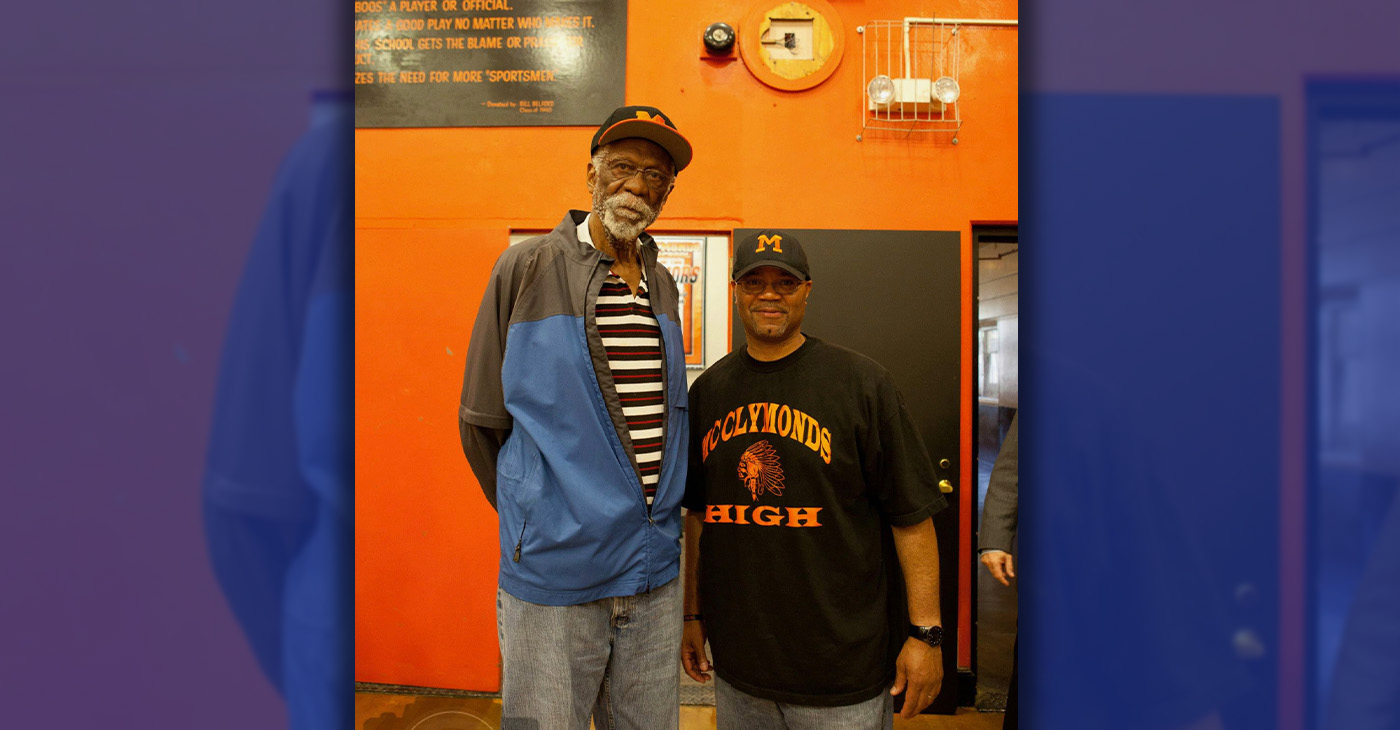
By Ken Epstein
West Oakland’s McClymonds High School, “the School of Champions,” this week named the school’s gymnasium in honor of one of its most famous graduates, basketball legend Bill Russell (class of ’52).
William “Bill” Felton Russell was born on Feb. 12, 1934, and died on July 31, 2022. He achieved fame as a U.S. professional basketball player who played center for the Boston Celtics of the National Basketball Association (NBA) from 1956 to 1969. He was the centerpiece of the Celtics dynasty that won 11 NBA championships during his 13-year career.
Russell is widely known as one of the greatest basketball players of all time. In 2011, he received the Presidential Medal of Freedom, the country’s highest civil honor, from President Barack Obama for Russell’s contributions to basketball and the Civil Rights Movement.
The McClymonds’ naming ceremony was held on Wednesday, the same day as Russell’s birthday. Oakland leader Bill Patterson, a longtime friend of Russell’s, was scheduled to cut the ribbon at the reopening of the gym, which had been closed for several months for renovation. Russell’s daughter Karen was scheduled to attend the ribbon cutting.
Russell’s name and signature are now printed on the gymnasium floor.
Patterson was working at DeFremery Park when he met Russell. “I befriended him as a boy and during his years at University of San Francisco” said Patterson. “We stayed friends for the rest of his life.”
Said McClymonds Principal Darielle Davis, herself a McClymonds graduate, “We are excited to honor Bill Russell for his sports accolades and because he broke color barriers. He is part of our legacy, and legacy is really important at McClymonds.”
Brian McGhee, community schools manager at McClymonds and former football player at UC Berkeley, said that Russell meant a lot to him and others at the school. “He was a beacon of light and hope for West Oakland,” he said. “He did a lot for sports and for civil rights.”
Starting in 2018, Ben “Coach” Tapscott worked with Patterson and other McClymonds grads, community members, and former coaches to encourage the Oakland Board of Education to endorse the naming of the school gym, which finally happened recently.
“We worked hard to make this happen,” said Tapscott. “He’s an important part of McClymond’s history, along with a lot of other famous graduates,” he said.
Activism
OPINION: Politics, Football and Identity in Trump’s America
If you haven’t noticed, all Americans are engaged in an even bigger game that means so much more than the Super Bowl. Our democracy is falling apart.
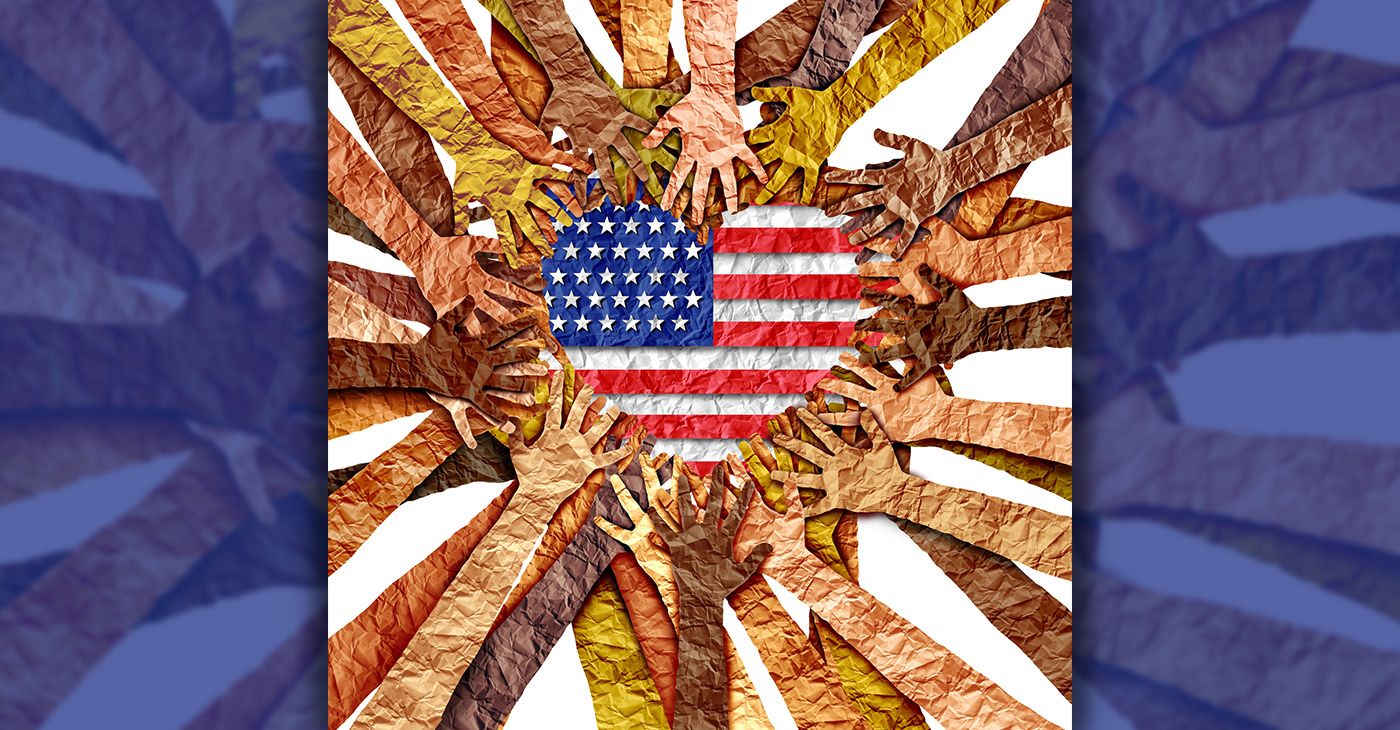
By Emil Guillermo
Two Filipino American stories made headlines recently.
First, Nikko Remigio, the Filipino and African American kick returner for the Kansas City Chiefs, did not win Super Bowl LIX.
The other, Alameda’s Rob Bonta said no to running for governor. I don’t blame him. It’s not like a mass of people wanted him to run.
But I did.
Whenever there is a Filipino American in a place you don’t expect, I’m rooting for that person.
As California’s Attorney General, Bonta is probably the most active defender among Blue States pushing back against Trump’s Extreme-Right agenda.
I’d like to Bonta run for California’s top job, but he’s better off waiting in line. The Democrats need a spot for Kamala Harris, and Bonta not running obliges the hierarchy.
History can wait. Bonta’s just 52.
Harris has held off speculation of her next move, saying she just moved back to the state. But it seems governor is the path for her.
For now, Bonta needs to continue taking the fight to Trump in the courts.
Football and Identity Politics
My dad, whose birthday would have been Super Bowl weekend, came to the US in 1928 as a colonized Filipino, an “American National,” where he couldn’t be a citizen, vote, own property or even marry the person he wanted.
Not if they were White.
Still, he believed in America. He never gave up.
Sort of like Nikko Remigio.
My dad would have loved Nikko.
If you haven’t noticed, all Americans are engaged in an even bigger game that means so much more than the Super Bowl. Our democracy is falling apart.
You want to get passionate about Eagles and Chiefs?
Let’s be passionate about our Founding Fathers, too.
Nikko didn’t change the game. He touched it three times and provided more yards than all of KC’s running backs.
That’s all I needed to see.
He’s our Filipino guy.
Detractors may call it “identity politics.”
People don’t seem to understand the fight for visibility. To be recognized. To be seen. It’s all wrapped up in the big idea of Civil Rights.
I was nowhere near as good as Nikko when I played. But when you are blessed to play football, you play your hardest.
For me, that was when I was 12 and 13 playing Pop Warner football in San Francisco. I was MVP for my team as a running back.
But I was ashamed of my dad. He wasn’t like the other dads. And I remember going to the team banquet to retrieve my trophy alone.
I didn’t realize it probably meant more to him than I thought.
I wish I had shared my MVP moment with him like Nikko shared his joy with his dad, Mark, born in Seattle to two Filipino immigrants, and his mom, whose mixture of Black and White made Nikko the picture of diversity.
Filipino American and Black and White at the Super Bowl.
But don’t forget, there is one game bigger.
The Super Bowl for Democracy. We’re battling for it every day Trump pushes a cockamamie idea that shakes the foundation of our Democracy.
About the Author
Emil Guillermo is an award-winning journalist and commentator. Watch his micro-talk show “Emil Amok’s Takeout/What Does an Asian American Think?” on www.YouTube.com/emilamok1 Or join him on http://www.patreon.com/emilamok
Bay Area
Tina Thompson: Champion, Legend, and Pioneer of Women’s Basketball
Known for her signature red lipstick, Thompson displayed confidence and style on the court, becoming an icon both for her gameplay and her individuality. Her ability to score from anywhere on the floor, combined with her defensive prowess, made her one of the league’s most formidable players.
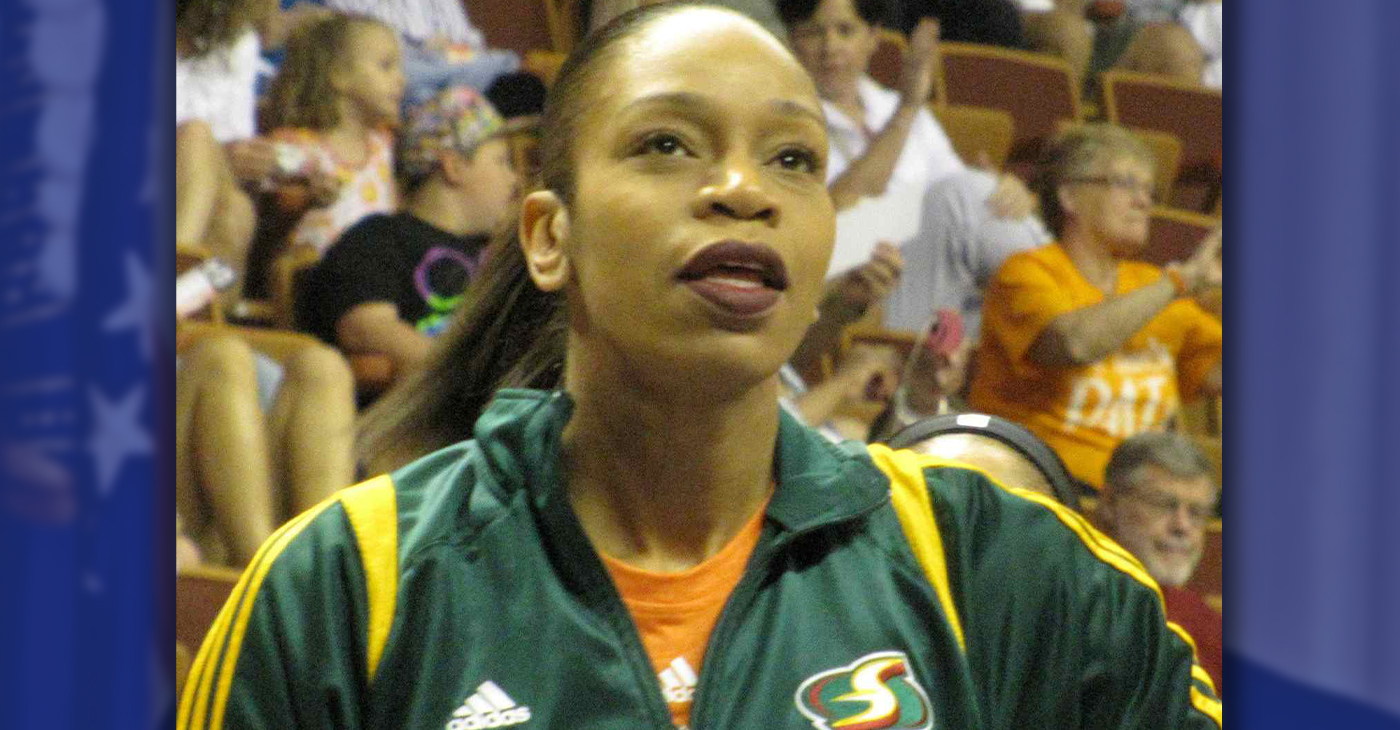
By Tamara Shiloh
The establishment of the Women’s National Basketball Association (WNBA) in 1996 was a turning point for women’s sports, creating a professional platform for female basketball players to showcase their skills at the highest level. Among the trailblazers who helped launch the league, Tina Thompson stands out as the first African American woman drafted into the WNBA.
Tina Thompson was born on February 10, 1975, in Los Angeles, California. Raised in a basketball-loving household, she quickly developed a passion for the game. Thompson improved her skills on the playgrounds of South Central Los Angeles, often playing against boys, which toughened her game and fueled her competitive edge.
She attended the University of Southern California (USC), where she became a standout player for the Trojans. Known for her versatility, scoring ability, and relentless work ethic, she earned All-Pac-10 honors multiple times and cemented her reputation as one of the top collegiate players in the nation.
When the WNBA held its first-ever draft on April 28, 1997, Tina Thompson made history as the league’s first African American player to be drafted. Selected as the first overall pick by the Houston Comets, she joined a team that would go on to dominate the early years of the WNBA.
Tina’s selection was a historic moment, symbolizing the league’s commitment to showcasing diverse talent. As a Black woman in a pioneering role, Thompson carried the hopes of aspiring African American female athletes who dreamed of playing professional basketball.
Tina wasted no time making an impact in the WNBA. As a key member of the Houston Comets alongside legends Cynthia Cooper and Sheryl Swoopes, she helped lead the team to an unprecedented four consecutive championships from 1997 to 2000. The Comets’ dynasty became the gold standard for excellence in the league’s early years.
Known for her signature red lipstick, Thompson displayed confidence and style on the court, becoming an icon both for her gameplay and her individuality. Her ability to score from anywhere on the floor, combined with her defensive prowess, made her one of the league’s most formidable players.
Over a career spanning 17 seasons, Tina established herself as one of the WNBA’s all-time greats. She retired as the league’s leading scorer, a record she held until it was broken by Diana Taurasi. She was a nine-time WNBA All-Star and was named to multiple All-WNBA teams, cementing her status as one of the sport’s legends.
In 2018, Thompson’s contributions to basketball were recognized with her induction into the Naismith Memorial Basketball Hall of Fame. The honor underscored her influence not just as a player, but as a trailblazer for African American women in sports.
After retiring from professional basketball, she transitioned into coaching, using her experience and knowledge to mentor young athletes. She has served as a head coach at the collegiate level, inspiring the next generation of players to pursue excellence both on and off the court.
As a role model and advocate, Thompson has consistently emphasized the importance of education, empowerment, and self-belief. Her story resonates with countless young women who see in her the embodiment of perseverance and success.
Tina Thompson is presently in her third season as an assistant coach at the University of Texas at Austin.
-

 Activism3 weeks ago
Activism3 weeks agoWe Fought on Opposite Sides of the Sheng Thao Recall. Here’s Why We’re Uniting Behind Barbara Lee for Oakland Mayor
-

 Activism4 weeks ago
Activism4 weeks agoSan Francisco Is Investing Millions to Address Food Insecurity. Is Oakland Doing the Same?
-

 #NNPA BlackPress4 weeks ago
#NNPA BlackPress4 weeks agoRev. Dr. Jamal Bryant’s Black Church Target Boycott Mobilizes 150,000
-

 Activism3 weeks ago
Activism3 weeks agoFaith Leaders Back Barbara Lee for Mayor, Criticize Candidate Loren Taylor for Dishonest Campaigning
-

 Activism4 weeks ago
Activism4 weeks agoOakland Post: Week of March 12 – 18, 2025
-

 Activism3 weeks ago
Activism3 weeks agoOakland’s Most Vulnerable Neighborhoods Are Struggling to Eat and Stay Healthy
-

 #NNPA BlackPress4 weeks ago
#NNPA BlackPress4 weeks agoRecently Approved Budget Plan Favors Wealthy, Slashes Aid to Low-Income Americans
-

 Activism3 weeks ago
Activism3 weeks agoGroup Takes First Steps to Recall District Attorney Diana Becton

